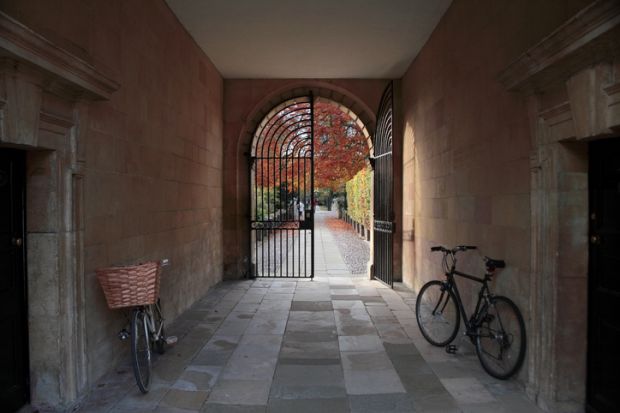A couple of weeks ago, a recently retired colleague told me that the University of Cambridge’s rule that all academics should retire at the age of 67 amounts to age discrimination.
I disagreed. But as he realised that I had sat on the committee reviewing this policy, he claimed I was “too young to be asked my views” and that I was “in clear conflict of interest”. On the basis of my appearance, he assumed I was a postdoctoral fellow waiting to snatch his job. Having, in fact, already reached the most senior academic grade in the university, I answered that I was very much looking forward to retiring in 30 years and leaving my spot to an up-and-coming colleague.
This is only one of the many abuses I have faced for supporting the conclusions of the review committee, which were published in May: namely, that we should maintain a compulsory retirement age at Cambridge, but raise it to 69.
The compulsory retirement age maintained by both Oxford and Cambridge even after the general abolition of compulsory retirement in the UK in 2011 has sparked heated debates and even legal action. Some, like my retired colleague, view it as an affront to academic achievements and service. But it is still legally possible to maintain a compulsory retirement age provided an objective case for it can be made. Cambridge’s case is based around the necessity of maintaining a vibrant academic ecosystem and creating opportunities for more junior academics.
Our committee’s data backs that up. Unlike other Russell Group universities, where retirees typically leave between the ages of 62 and 65, 70 per cent of established Cambridge academics in STEM subjects and 60 per cent in other subjects retire at 67. Why? Because people love this institution, and their work is intertwined with their identity. Yet, unlike other Russell Group universities, student numbers at Cambridge have not grown by much, which means most job creations come from people vacating their posts rather than student-led growth in faculty numbers.
Simulations based on Hesa data show that abolishing the retirement age would cost Cambridge between 12 and 26 new job opportunities annually. Twelve of my colleagues came together to challenge the assumptions of those models, yet they do not offer any alternative conclusions or evidence.
Neither does the University and College Union, which panders to its more senior members by supporting abolition rather than considering the opportunities compulsory retirement creates for younger ones – not to mention its clear benefits to gender and race diversity, which, in other contexts, the UCU is rightly keen to promote.
The data is never perfect, yet it is not only rocket scientists who can see that abolishing the retirement age would be a disaster for the university. People would basically be able to hold their job indefinitely, whatever their performance or contribution.
Still, it is clear that even if we maintain our retirement age, there is much work ahead to improve the way we handle retirement; our current procedures have evidently traumatised many colleagues. We need a more flexible approach, allowing people to extend their contracts when the funding they bring in is crucial to the university or when their retirement would not lead to job creation.
There is no doubt that our senior colleagues make a huge contribution with regard to research, teaching and mentoring junior academics. We need to continue drawing on their passion for academia and for our university with a retirement process that enables them to remain involved. This is one of the benefits of the college system for those who have invested in building those relationships, but the university also needs to revisit its approach.
We must redefine our perception of academic retirement. It does not mean ceasing all research and teaching. It simply means vacating an established post – a post that will then become a life-changing opportunity for someone looking to kickstart their own academic career.
Thomas Roulet is professor of organisational sociology and leadership at the University of Cambridge and a fellow of King’s College, Cambridge.
后记
Print headline: A retirement age is reasonable




